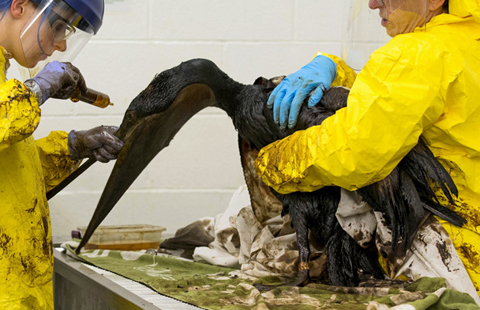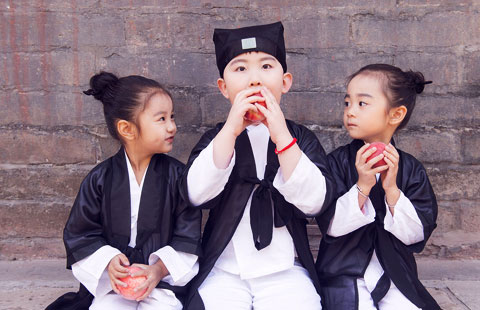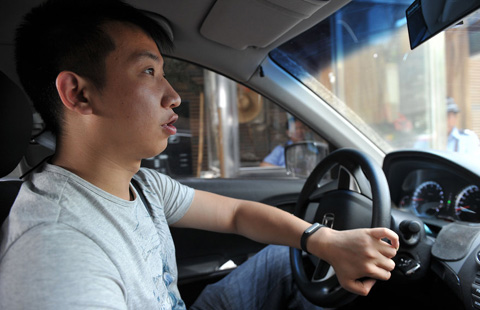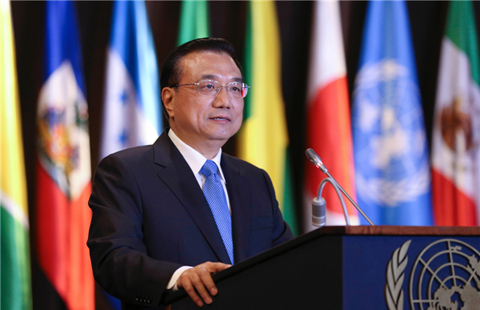Playboy's partnering with Chinese company applauded by experts
Updated: 2015-05-27 10:13
By ZHENG XIN In New York(China Daily USA)
|
||||||||
Despite Playboy never having sold a magazine featuring nude "playmates" or operated a club at which scantily clad women wear rabbit ears and tails as "bunnies", Chinese are familiar with the brand through its clothing line.
Playboy has 97 percent brand awareness among Chinese consumers, according to Penn Schoen Berland, a consultancy that specializes in communications strategy for corporate and entertainment clients.
So Playboy's partnering with a Chinese company in an effort to grow its market on the Chinese mainland is seen as a smart move.
"When a company wants to crack a local-to-global code and succeed in a foreign market, it's a wise move to work with local companies, who have more local resources and knowledge of the market," said Derek Dong, group account director of research agency Millward Brown, a market-research firm in New York.
Playboy earlier this month announced a licensing deal with Chinese company Handong United to manufacture and distribute Playboy-branded apparel and accessories in China. The move will expand its distribution from 3,100 to 3,500 outlets while putting Playboy merchandise in 400 new locations across China.
"For Playboy, a household-status brand that wants to resume its former glory, joining hands with China's Handong United that boasts of its broad distribution network in China will better help with its expansion of its fast-growing presence in China," Dong said.
In recent years, Playboy has partnered with top-tier retailers and brands, including Collette of Paris, Lane Crawford in Hong Kong, Beijing and Shanghai, and Isetan in Tokyo.
"As one of the most famous and treasured brands in China, Playboy is considered the 'must-have' fashion choice by men and women across the mainland," said Xiaojian Hong, executive officer of Handong United.
"We're grateful to have been selected by Playboy to be their esteemed partner in developing and bringing new, premium fashion and accessory collections so even more Chinese consumers can enjoy the iconic Playboy brand experience for generations to come," Hong said.
The two companies said they want to expand the assortment of men's and women's apparel, including casual clothing, and formal and casual footwear and accessories, such as belts, bags, backpacks, wallets and luggage.
The company said it has been selling clothes in China for the past 20 years and has generated $5 billion in retail sales in China in the last decade. In 2014, Playboy had $1.5 billion in annual retail revenue across the globe, with more than half a billion derived from China.
Playboy has been been trying to regain relevance in recent years by transforming from a struggling adult-magazine business rendered virtually obsolete by the online porn into a more profitable licensing of its brands.
"We're proud of the fact that the Playboy brand has achieved household status as the one of the most recognized and popular brands in the world's leading retail market," Scott Flanders, CEO of Playboy Enterprises, said in a release on its website.
"To achieve this leadership position without ever having a media entity in China is a testament to the tremendous power of our brand," he said. "China is one of our most important markets, and we're committed to working with the highest caliber of partners to develop premium-quality products to connect our brand to the future generation of Chinese consumers."
Playboy shares were once publicly listed but the company was taken private after founder Hugh Hefner bought back full control in 2011.
Dong said Playboy's move might not be an easy one, as there has been an increasing number of brands available in the Chinese market as well as on the Internet.
"Playboy did not really focus on brand-building in China, with barely any advertisement or promotion, and has lost much of its share of voice in the past few years without any communication with its consumers," Dong said.
"The Chinese market is shifting at a rapid speed, and without consistent brand building, one can get easily weeded out no matter how dominant it used to be," he said.
Dong said that counterfeit products might also hamper Playboy's efforts in China.
"Many Chinese get to know of the brand through its fake imitations, as Playboy was very popular in China in earlier years that many small workshops began to manufacture the fake T-shirts, still with a bunny logo but at a much cheaper price," he said. "How to fight against the fake and counterfeits is another puzzle to be solved."
zhengxin@chinadaily.com.cn

 California oil spill takes toll on marine mammals
California oil spill takes toll on marine mammals
 Ten photos you don't wanna miss - May 27
Ten photos you don't wanna miss - May 27
 Family photos for mountain-dwellers
Family photos for mountain-dwellers
 A young part-time chauffeur on the road
A young part-time chauffeur on the road
 Death toll from heat wave in India nears 800
Death toll from heat wave in India nears 800
 Tech giants shine on Intl Big Data Expo 2015
Tech giants shine on Intl Big Data Expo 2015
 Premier Li urges production capacity co-op between China, LatAm
Premier Li urges production capacity co-op between China, LatAm
 US honors war dead on Memorial Day
US honors war dead on Memorial Day
Most Viewed
Editor's Picks

|

|

|

|

|

|
Today's Top News
Li seeks 'dual track' for Chile exchanges
China cautions US over
South China Sea
China, Cuba emphasize confidence
Storms kill 16 in Texas, Oklahoma; Houston flooded
Obama to host South Korea's Park in mid-June
California oil spill takes toll on marine mammals
China issues first white paper on military strategy
China, Chile ink multi-billion-USD currency swap deal
US Weekly

|

|







